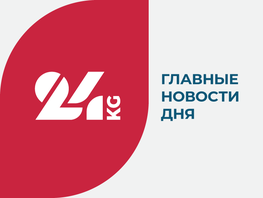Online public hearings were held on the draft republican budget for 2021 and the forecast for 2022-2023 today, on September 24,2020. A Media Consultant for Health Issues, Elena Bayalinova, posted on Facebook.
According to her, in his presentation, the head of the Financial Policy Department of the Ministry of Health of the Kyrgyz Republic, Mukhtar Baimurzaev, noted that there are no plans to cut the healthcare budget for 2021 and the coming years. In connection with the coronavirus pandemic, funding from international donors and partners will increase in the short term.
Director of Socium NGO and a member of the Coalition for Budget Advocacy, Batma Estebesova, noted that an active part of civil society wants and has the right to participate in the budget process.
«In the spring, the Coalition made proposals to the Parliament of Kyrgyzstan, which were taken into account in the Budget Resolution, but were not reflected either in the main directions of fiscal policy or in the draft law on the budget. Among the proposals are the formation of a comprehensive epidemiological surveillance system, a revision of the Government’s Health Protection and Healthcare Development Program for 2013-2030, taking into account the problems detected during the COVID-19 pandemic; timely payments for services rendered to healthcare organizations under the State Guarantee Program; introduction and constant expansion of funding for prevention programs and others,» she said.
According to her, an important measure that was proposed by the Coalition, but was not included in the Budget Resolution of the Kyrgyz Republic, is to ensure uninterrupted financing of compulsory health insurance costs through the monthly provision from the republican budget of at least 1/12 of the approved amount of allocations from the republican budget to the budget of the Compulsory Medical Insurance Fund.
Batma Estebesova added that the following financial resources are needed to reduce the level of socially significant diseases: tuberculosis — at least 70 million soms, AIDS / HIV — at least 20 million, palliative care at home — at least 20 million, oncology — at least 700 million with subsequent increase to 1.5 billion, diabetes mellitus — 300 million soms, for purchase of tableted antidiabetic drugs — 397 million soms. «For the treatment of hepatitis B, C, D, for vaccination of the population — at least 800 million soms, drug provision — 600 million soms. It is also necessary to provide financing of the network of social hostels, including for homeless people, to reduce the risks of the spread of socially significant and / or infectious diseases,» she added.




